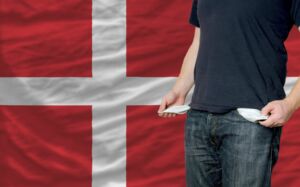Opinion
Danish Capital in 2016: Asset confiscation is bad business
Neil Smith
This article is more than 9 years old.

Denmark could be left seriously out of pocket
Last month the Danish government announced a proposal to make asylum-seekers with modest assets pay for their stay in Denmark. The exact proposal was confused, with a string of sometimes-contradictory comments as to the precise criteria.
Damaged reputation
This led to widespread reporting in the American and British media, most notably the Washington Post, that the government was planning to seize asylum-seekers’ jewellery and personal effects.
Understandably, most of the critique of the proposals came from a moral angle but, putting to one side for a minute the ethics of confiscating wedding rings from people fleeing persecution, the suggestion and surrounding confusion has been damaging for Denmark from a business perspective.
Well-run system?
The annual value of Denmark’s exports is over 600 billion kroner. In a small and open country, this plays a crucial role in the economy. The marketing often leverages Denmark’s strong international reputation for tolerance, self-respect and understanding.
Aside from the direct marketing, Denmark’s reputation often also used indirectly in promotions referring to “efficient public authorities” and “state investments in public-private partnerships”. These claims effectively promote a country as having a fair and well-run system and the promotion becomes far less powerful if there is less belief in the country’s wider system.
What of ‘Brand Denmark’?
In business parlance, this is ‘Brand Denmark’ and it has been built up by the country showing fairness, tolerance and sure-handedness over many decades.
The exports that follow from it help to support jobs in Denmark, leading to significant tax revenue, all of which helps to keep the Danish welfare state oiled.
Like any brand though, what is painstakingly built up over decades can disintegrate quickly.
Bad business
It is impossible to say to what extent the critical coverage (which included, rightly or wrongly, comparisons to the policies of Nazi Germany) in the foreign press will effect business decisions.
It would seem though to have some impact on ‘Brand Denmark’, given that there has been no suggestion that the plan is likely to yield significant funds, the proposal was not only badly executed and morally questionable, it also represented bad business.

About
Neil Smith
Neil is a Scottish-educated lawyer with 15 years’ experience in corporate structuring and general commercial matters. Based in Copenhagen, he primarily advises on international deals. Out of the office his interests include sport and politics. His column explores topical international financial and economic issues from a Danish perspective.










































